Babydoll Sheep are the Perfect Farm Animal for Your Homestead or Hobby Farm
Babydoll Sheep are gentle, adorable, low-maintenance, yet productive—the perfect addition to your homestead or hobby farm!
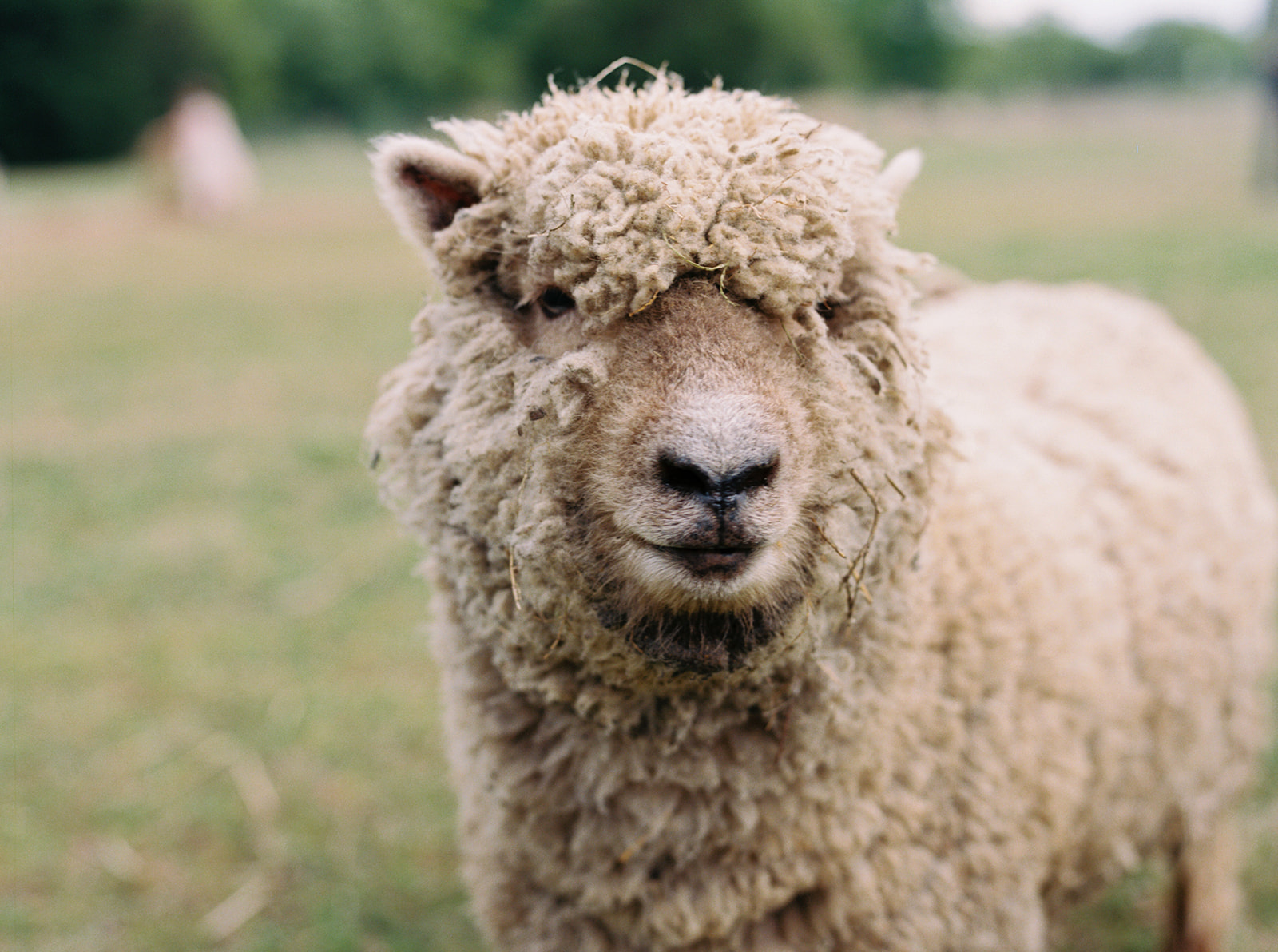
If you’re looking to start your own flock, this post covers everything you need to know:
- What are They? What is Their Correct Breed Name?
- The History of the Breed
- Their Adorable Appearance: Size, Weight, Colors, etc.
- Personality, Temperament, and Hardiness
- Their Purposes on Your Homestead
- Special Bonus: Why Knitters Love Their Wool
- Their Low-Maintenance Care
- Plus, How You Can Buy Lambs of Your Own!
Olde English Babydoll Southdown, Babydoll Southdown, Babydolls, etc.
What are They?
As one of the oldest English breeds, they go by many names. However, their official name is Olde English Babydoll Southdown Sheep.
The History of Babydoll Sheep
Are they miniature sheep? Nope.
In fact, they are a heritage breed originating in the late 1700s from the South Down hills of Sussex County, England.
In the early 1800s, they were imported to the United States. As farming began to be more industrial and mass-produced, their small size became less economical.
The South Downs were crossbred with other, larger breeds to become bigger. This is what you now see as the modern-day Southdown.
John Ellman worked to preserve and standardize the breed as we know them today. However, the pure bloodline went nearly extinct at one point, with just 350 sheep accounted in the late 1980s and early 1990s.
After they were rediscovered and saved from extinction, they were classified as ‘miniature’ and named ‘Babydoll.’ This was to not cause confusion in the livestock industry with their larger relatives.
Size & Appearance
How big do they get?
They grow about 18-24 inches tall.
I’m 5’2” and my flock would barely graze my knee-height.
This is perfect if you have a hobby farm and space is limited.
How much do they weigh?
They weigh an average of 75 pounds. I have read that some can reach up to 140 pounds. Ours are on the average to small side under 100 pounds.
When it’s time to trim hooves or shearing season comes, you’ll be so glad you’re only dealing with 75-120 pounds of fluff rather than upwards of 200-250 pounds of a larger breed.
Why Babydoll Sheep Size Makes Them Perfect for a Homestead or Hobby Farm
If you have a homestead or hobby farm, meaning, you are probably doing everything yourself, their size is more than manageable.
Also, they are perfect for families, especially if your kids want to get involved in 4H.
What color are they?
Most are white or black. The white ones can have either a lighter coloring or as our lamb Pepper shows, a more tan face.
The black sheep’s fleece may appear browner as they spend more time in the sun, it lightens their coloring.
You can also find spotted ones that are considered by the breed standard as blemished and unacceptable for showing. But, I think the freckled lambs are adorable!
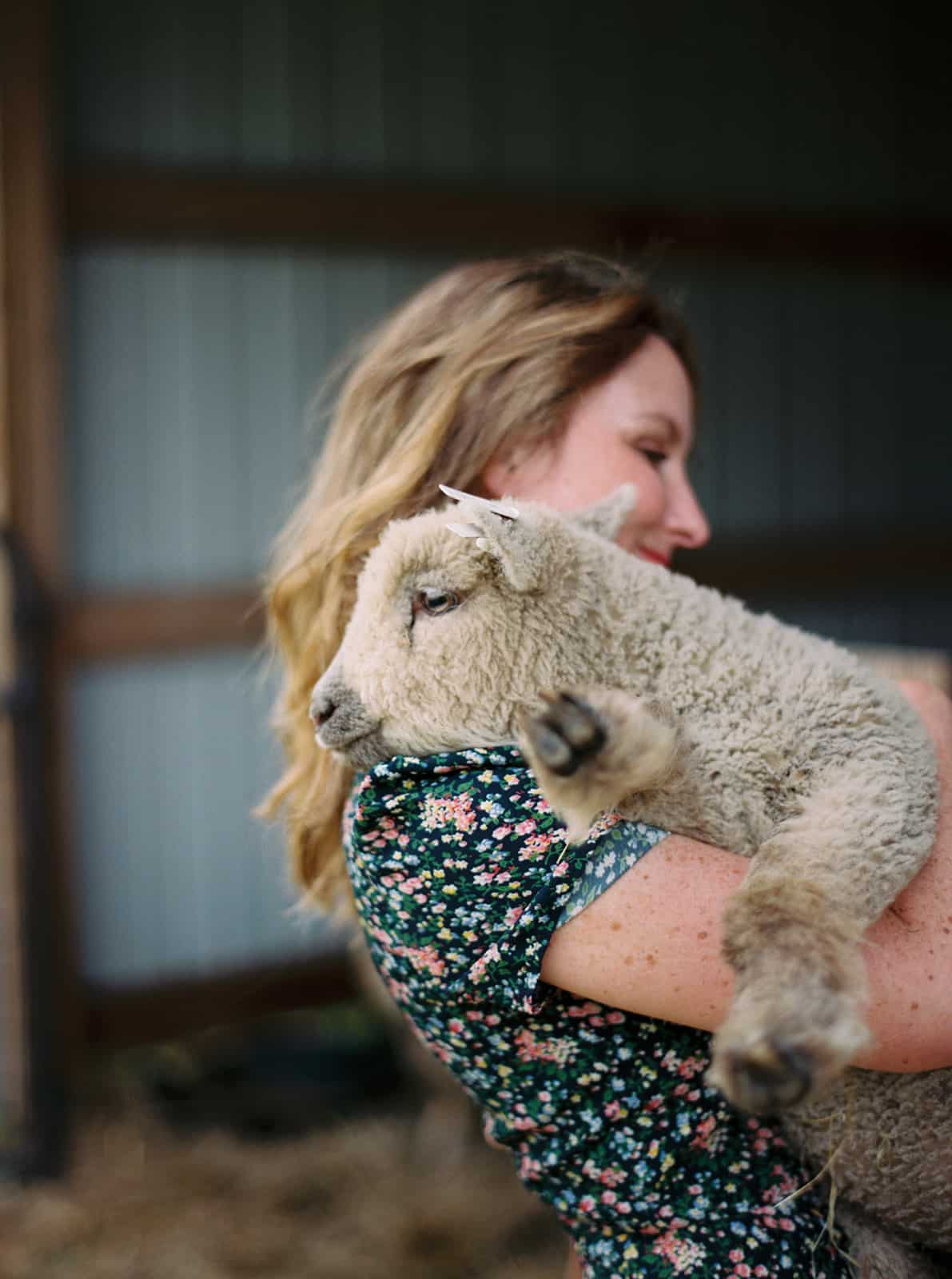
Temperament and Hardiness
They are sweet, gentle, low-maintenance yet hardy.
Temperament
When we first acquired our flock, I expected this big cuddly moment where the lambs would run to me and we would have this magical hug. Yeah, that didn’t happen.
It took a few weeks before they would get near me.
They are not pets, but with some time they can become like pets. And Babydolls, once they warm up to you and trust you, can become like one of the family.
I spent several days working outside near them, being still and allowing their curiosity to get the better of them as they got closer and closer. And now, they come running to me every morning and love to be scratched under the chin.
Aggression
They are not aggressive. They are prey animals, so you won’t see them be aggressive, except for two instances.
Sometimes they will ram each other (still, rather gently, it’s funny to watch) to compete for food or a favorite spot to nap. Or, they will stomp a hoof to indicate danger to the flock. Our ‘Peggy’ is usually the one to let the others know if the neighboring dog is nearby.
If I bring out some treats like alfalfa or grain, they’ll get so excited they’ll *try to* buck or jump. Sweet things can only get an inch perhaps off the ground, but they are so proud when they do!
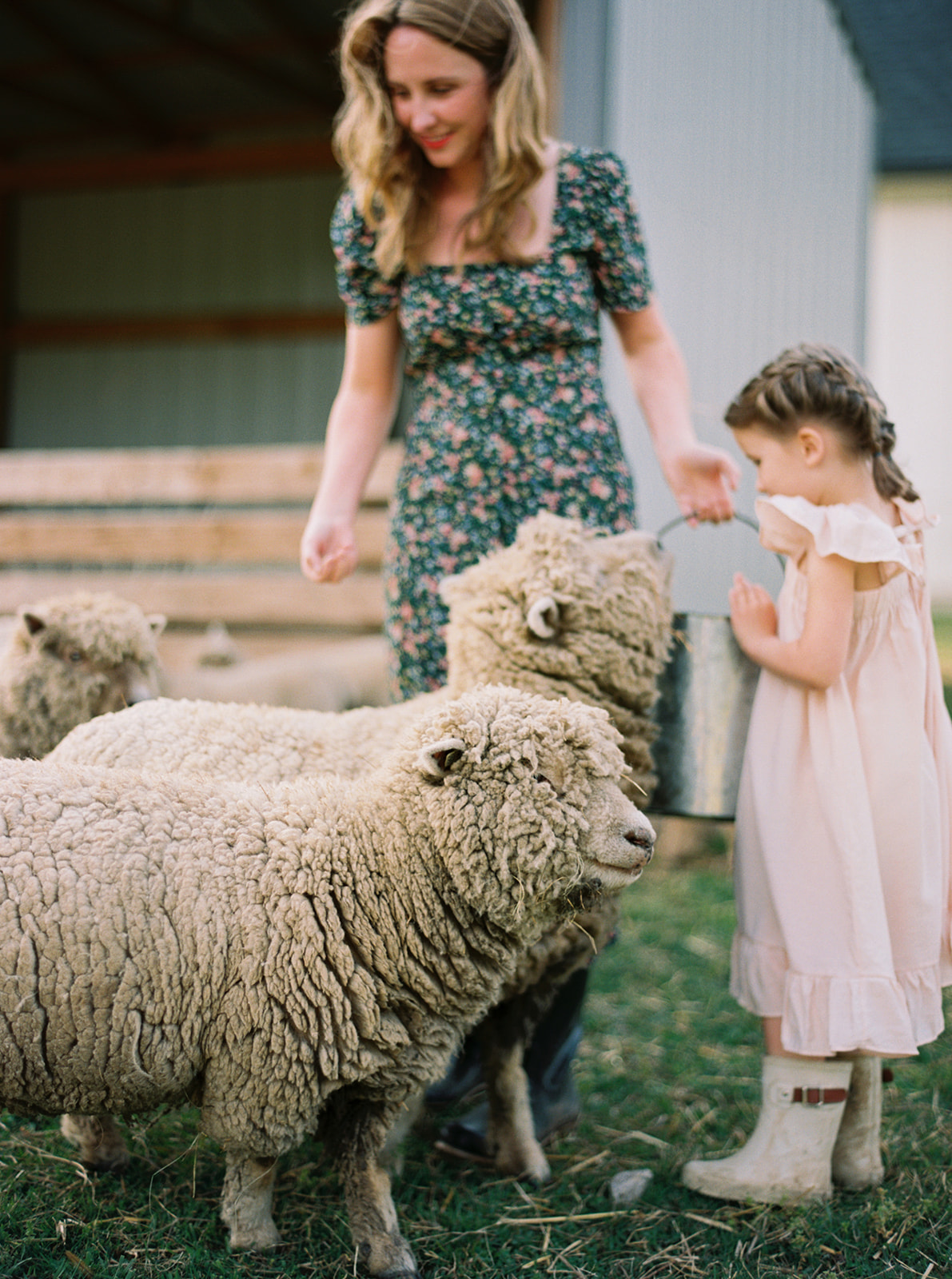
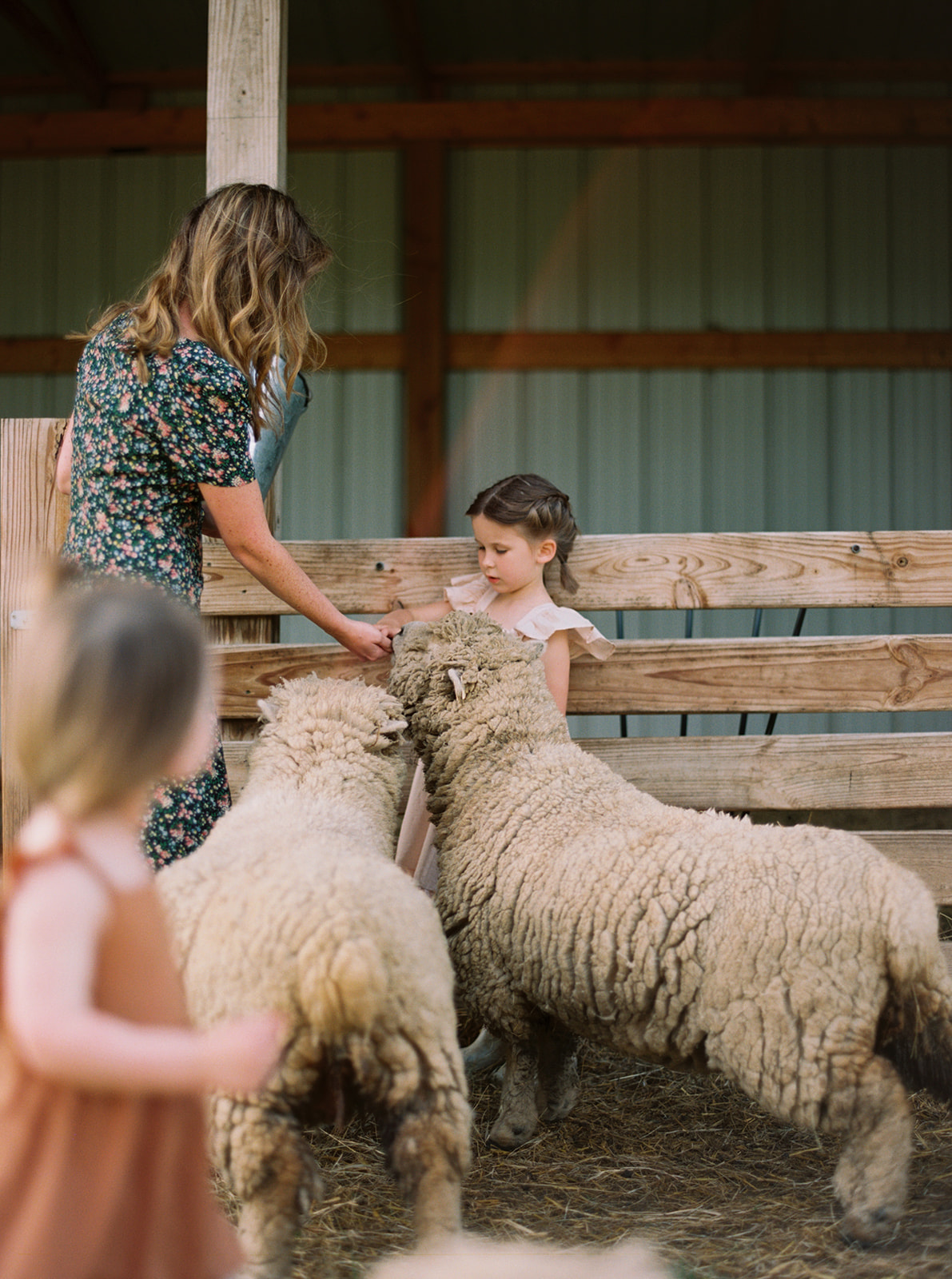
Overall, their personalities and temperaments are very gentle, even with children.
My daughter Hadley has no problem walking right up to ours and loves to hand-feed them some grain or rub under their chin—they love that! They may excitedly run towards me and my girls to greet us, but they never run too close.
Be careful and aware of any sudden movements though. They are prey animals and if they get scared they could accidentally run into you or knock a small child down. Always be aware and cautious with any animals, big or small.
Hardiness
How long do Babydoll Sheep live? 12-16 years.
They are not prone to disease nor are easily injured. Most injuries result from an attack.
Our ‘Peggy’ was attacked by a neighboring dog when she was just a lamb. The dog thought her fuzzy ear was a chew toy, but she recovered quickly and is perfectly healthy.
They are very good at hiding any illness or injuries, so you do want to make sure to inspect them regularly. With even just regular attention, they are very good to bounce back.
Babydoll Sheep on the Homestead
The most asked question I get regarding them is, “They are super cute, but what are they good for? Are they pets? Or do they have a purpose?”
Those people have no idea what kind of soapbox they just set up for me, haha.
What are Babydoll Sheep good for?
- Pets
- Mowing
- Pruning
- Fertilizer
- Fleece
- Harvest
They Make Excellent Hobby Farm Pets
Once they are acclimated to their environment and owner, they warm up quite nicely and make for great company as you work on your hobby farm.
If you are trying to decide between getting them or miniature goats as hobby farm pets, I would advise you to go for the sheep.
Goats are wonderful, but they can be very destructive and are incredible escape artists. They will keep you busy and on your toes.
If you are deciding between them and alpaca, do know that alpaca can be quite aggressive. If you want something gentle, go for the Babydolls.
Babydolls are much calmer. They can be playful, but they do not get into anything they shouldn’t and are not interested in fighting or breaking out of their paddock or pasture.
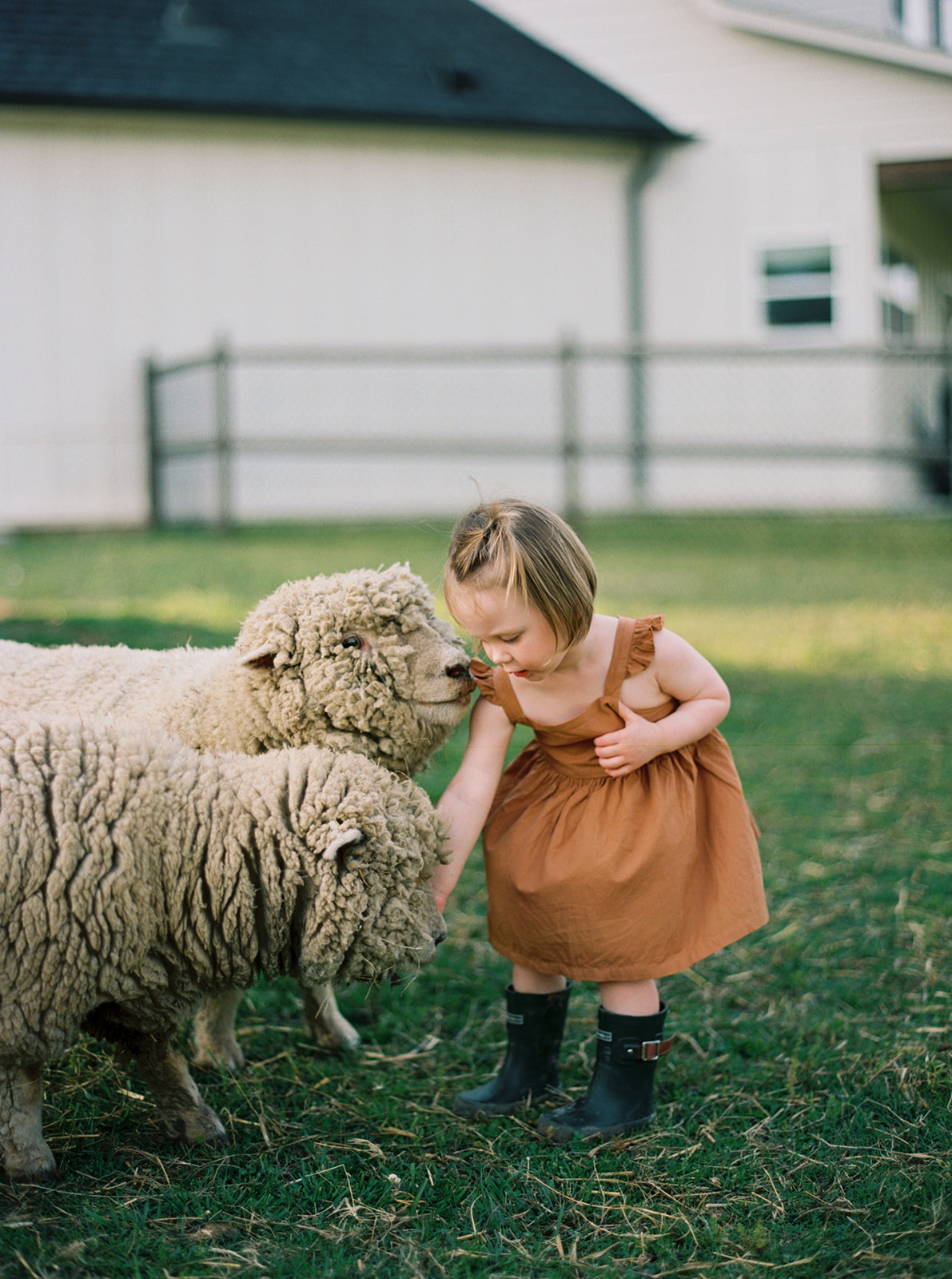
Beautiful Lawn Mowers
Not only are they beautiful to look at, but they will keep your grass down as they are excellent foragers.
For pastures that you bale, they will still leave you enough for small square bales to save up for winter. When we baled our sheep pasture, we baled enough for the flock to enjoy hay all winter.
Helpful Pruners
If you have an orchard or vineyard, these teddy bears were made for you! They work diligently in pruning and mowing while not disturbing or being able to reach any of the fruit.
Effective Fertilizers
Wherever you allow them to graze, the sheep will drop their nitrogen-rich pellets and stomp them into the soil.
You may not realize it, but their feces will not create ugly brown patches in your grass like a dog would nor do you have to worry about stepping into nasty patties. Their feces rest close to the ground giving it beneficial nutrients and allowing you to not have to watch your step.
Cashmere-Like Fleece
Every spring their fleece is sheared and runs in the 19-24 micron range. This means it can be worn close to the skin.
Because it is highly barbed, you may want to run it with other fibers like angora rabbit or angora goat.
Harvesting for Meat
I don’t know of anyone who raises them for meat, even though that is what they were used for for the family farm years ago. Apparently, it’s very tender and sells well.
However, I could never bring myself to do that. I know many breeders refuse to sell lambs to be bred and raised for meat.
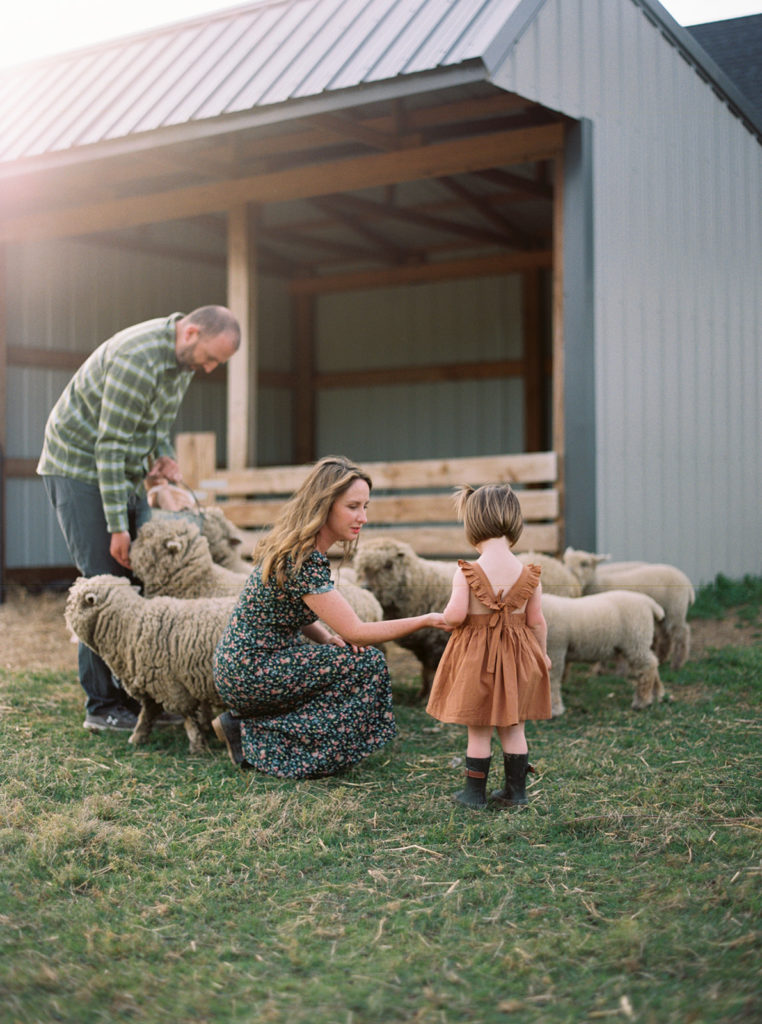
Shearing Babydoll Sheep Fleece & Why Knitters Love Their Wool
If you have never experienced processing, dying and spinning yarn, do not worry. Neither had I before owning sheep. There is a bit of a learning curve, but with patience, you can figure it out.
Or, I can bet someone in your community would be happy to get their hands on the fleece and help you out.
Your sheep will need to be sheared to acquire the beautiful, soft fleece. There are some shearers that travel the country to offer this service or you can find one near you through word of mouth.
Shearing does not hurt the sheep. You must shear the sheep every spring, and sometimes a little trim up for looks or around the eyes in the fall is necessary too.
Honestly, when you know how to shear properly, it’s like a spa day for them—they love it!
Babydoll Sheep Care
Care is simple. There is a bit of getting used to reading your sheep and knowing what signs to look for when they are ill or injured. But otherwise, they are low maintenance.
How many can be kept in one acre?
You can keep up to five in one acre. This makes them wonderful for a small hobby farm.
What kind of shelter do they need?
You’ll want a barn or three-sided shed for your lambs that is dry and warm. If you live in a warm environment, you may want to invest in fans to keep them from overheating in the summer.
What kind of fencing will they need?
We suggest some sort of panel fencing whether hog panel or any predator-proof fencing. For these sheep, it’s less about keeping them in and more about keeping predators out.
What do they eat?
They graze on most grasses and in the winter are happy to eat (and play in) good-quality hay. Mine love when I mix a little alfalfa with the hay. You can hand-feed them some grain which helps them warm up to you better.
Do you groom them?
We do not groom ours as we do not show them. However, we do shear them every spring, check and trim hooves every quarter. In the fall and winter, we’ll trim around their eyes if their wool is growing quickly so they can see better.
Finding Babydoll Sheep for Sale
Lambs are born in the spring after about a 145-day gestation period with typically 1-2 lambs per ewe or mother sheep. Lambs are fed by their mothers or bottle-fed if needed, and ready for their new homes in about 60-80 days.
Finding a reputable breeder is very important, of course. Our sheep are registered with the North American Babydoll Southdown Sheep Association & Registry. Make sure your lambs are provided with proper paperwork.
You Need Babydoll Sheep in Your Life and on Your Homestead
In 2012, I read a story on the Beal family of Blackberry Farm in Architectural Digest. A stray sheep in the corner of their portrait caught my attention.
Later, Brooke Gianetti of Velvet & Linen introduced me to the Babydoll Sheep breed in 2016. She announced she was going to be adding them to her Patina Farm, and I was smitten.
After extensive research, it became my dream to own a flock of my own. And in 2019, after we had moved to our homestead, that dream came true.
They are the O.G. Their size is perfect for those who want more manageable livestock like a hobby farm. They will supply you with wool, lawn mowing, pruning and replenishing nitrogen into your soil. They are sweet and adorable. Pay attention to a few key things in their care, and they will supply you with years of fond farm memories.
Affiliate Disclosure & Content Disclaimer
This post may contain affiliate links from a sponsor, Amazon Affiliates or other program. If you use these links to buy something we may earn a commission at no extra cost to you. This allows me to continue creating more content that you love. The content of this article is for general information purposes only. My goal is to provide you with the best information possible from my personal experiences for you to make the best decisions on the given topics for yourself.
Photographs by Leah Payne